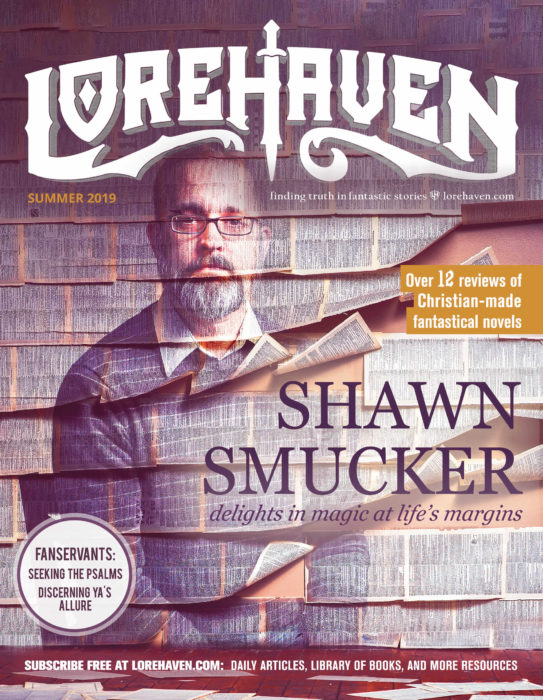Let’s Guard Against Temptations in YA Fiction
Parents are often thrilled when their child becomes a reading machine. Moms and dads may assume any book is better than hours in front of a screen!
But many parents who don’t read the same books as their children aren’t aware of the amount of sexual content in modern young adult (YA) fiction.
Christian freedom allows for us all to draw the line in different places. But regardless of where your family places that barrier, books’ themes about sex and lust can challenge us about what we worship—either God or our own passions.
As a preteen, I read a YA novel fraught with sexual tension, even though it contained no explicit sex scenes. That was my first encounter with what I later labeled “emotional porn.” Then I stumbled upon a quote by novelist Stephen King, where he explains why Stephenie Meyer’s Twilight saga was such a hit.
King wrote: “[Meyer is] opening up kind of a safe joining of love and sex in those books. . . . It’s exciting and it’s thrilling. . . . A lot of the physical side of it is conveyed in things like the vampire will touch her forearm or run a hand over skin, and she just flushes all hot and cold. And for girls, that’s shorthand for all the feelings that they’re not ready to deal with yet.”
Elsewhere, King even referred to Meyer’s series as “tweenager porn.”
Here, King shows that he understands the power of literature better than most readers. Reading a book is not the same kind of experience as watching television. Although TV and books both tell stories, books will always have a power over the mind and body than a film ever will—especially for women.
When it comes to sex, women are less likely to seek visual stimulation like men. They care more to be desired and desirable, and not always in sexual ways.
I believe King is saying that modern storytelling methods of showing not telling—using frequent internal and external sensations—can help a reader feel what the character is feeling. They can taste, hear, smell, and see what the protagonist is experiencing. But you will never have the same kind of reaction when you watch a film. It will never take you as deep, or make you fall in love as hard as a book will. This is a wonderful thing! Unless the author uses this power irresponsibly, or worse yet, uses it against the reader in order to wreak havoc on their heart.
Trust is earned. When I read, I’m putting my heart into the hands of a stranger. I continue to do this because stories are important and God-glorifying. But this is a trial run. If authors prove to be untrustworthy, I won’t recommend their books to others. If I feel their stories are leading me to sin, I won’t finish them at all.
So how can we as parents practically help our children discern what to read?
I highly recommend doing this research for yourself rather than taking recommendations from strangers or even well-meaning friends. They will likely draw the line for sexual content in surprisingly different places.
Sometimes a book’s front cover will be a dead giveaway. For example, if the characters are already immodestly dressed and kissing, the story inside the book will almost certainly go further.
Most of the time, however, we’ll need to dig a little deeper to figure out what’s really inside a book. Take time to familiarize yourself with the jargon of book descriptions and reviews on Amazon and Goodreads. For example, if the love interest is described as “mysterious and alluring,” the story will likely include sexual overtones.
Blurbs and reviews are not often so straightforward. To get a better sense of the book, try reading the first chapter. I once picked up a book where the female protagonist says a boy’s lips look “achingly kissable” on the first page. That description foreshadowed what I could expect later in the story.
Check the author’s websites. Some authors are already aware that parents of teens aren’t always thrilled with the sexual content in their book. You can occasionally find content warnings on their personal websites.
Pray with your child through the Psalms and other passages that focus on affections. For example, pray along with Psalm 1:2 that your kids will “delight . . . in the law of the Lord.” Or with Song of Solomon 2:7 that they will “not stir up or awaken love until it pleases.”
Ultimately, do not be discouraged about literature. The world is filled with wonderful, character-building books. And all Jane Austen fans worth their salt know a romance novel can edify as well as entertain.
Stories are an incredibly powerful tool—used either to help us to worship God, or draw us farther away from him. Pray that our sovereign God will guard your child’s heart, as Paul says in Philippians 4:6–7: “In everything by prayer and supplication with thanksgiving let your requests be made known to God. And the peace of God, which surpasses all understanding, will guard your hearts and your minds in Christ Jesus.”































Share your fantastical thoughts.